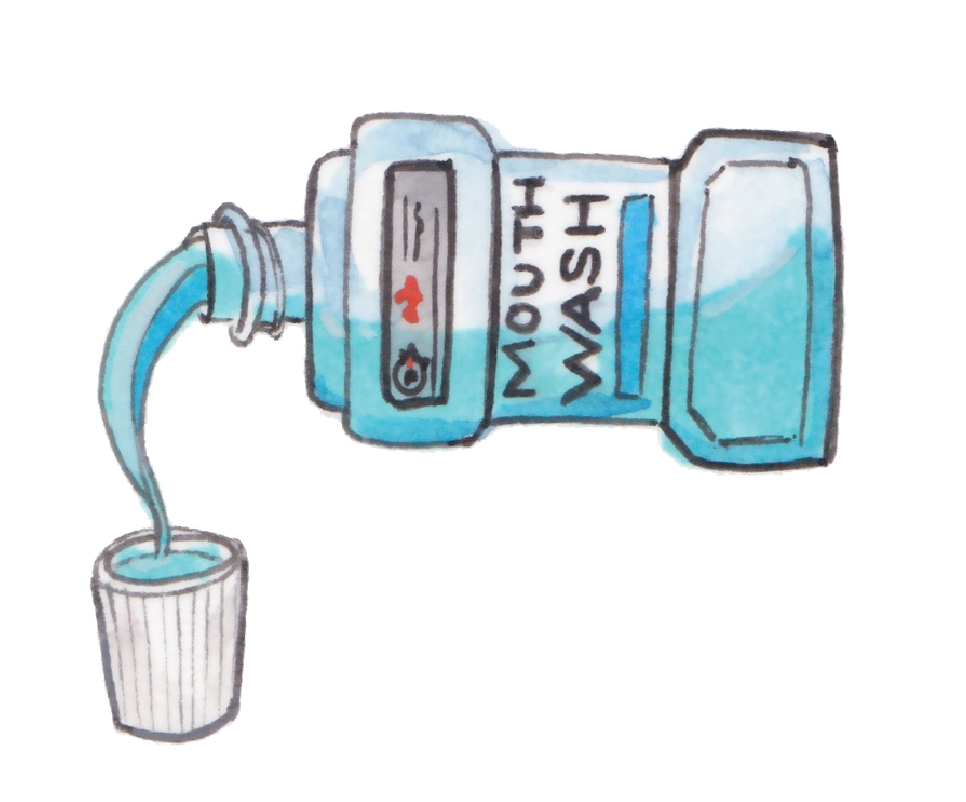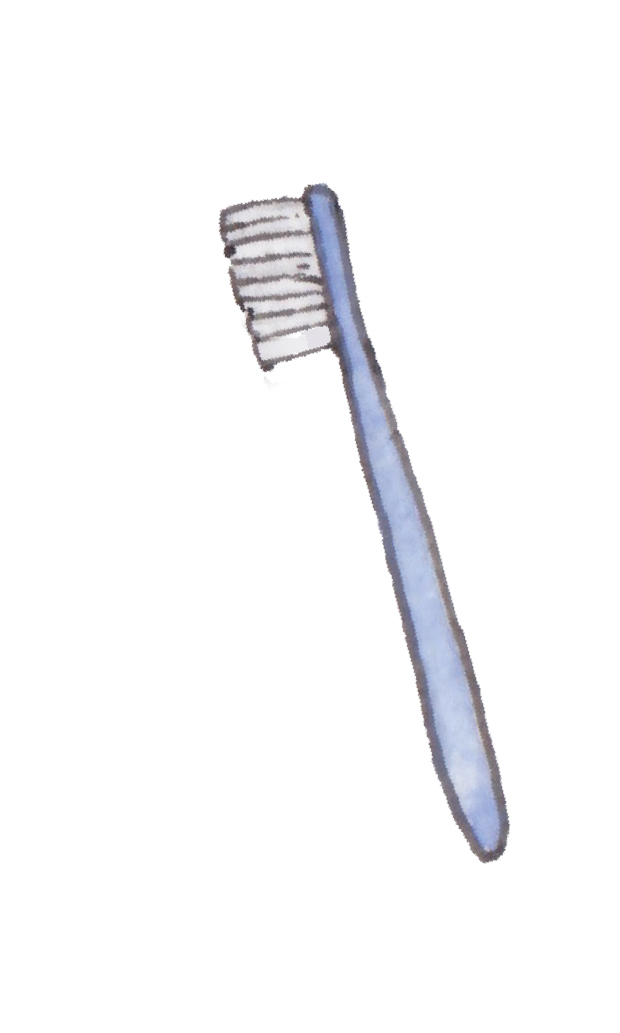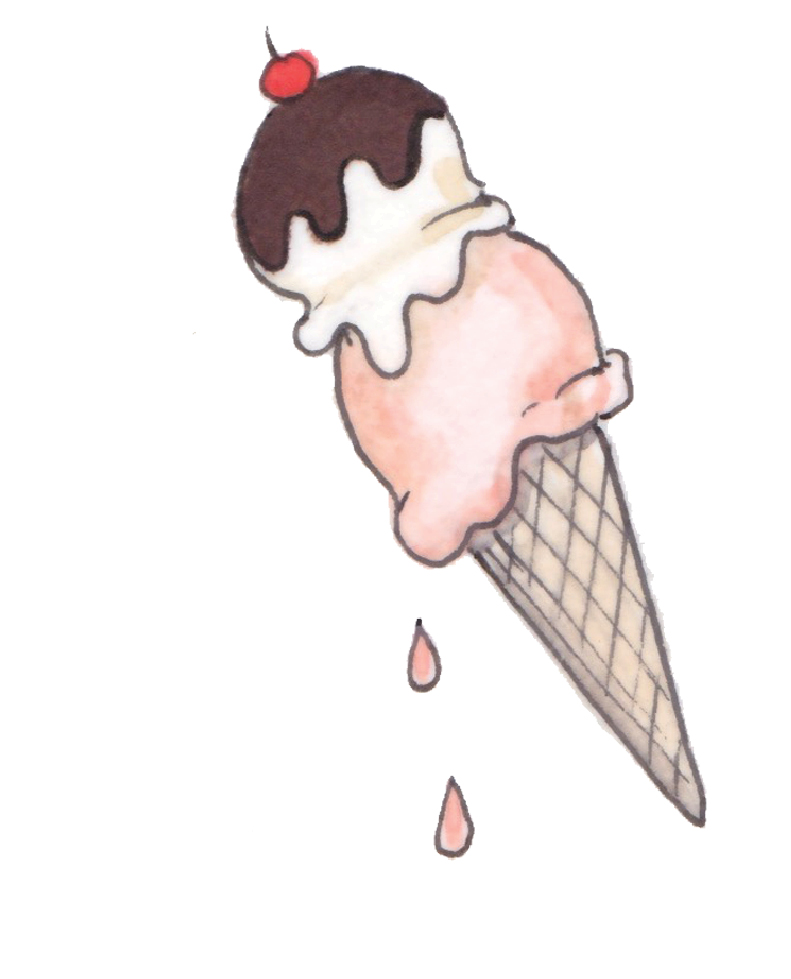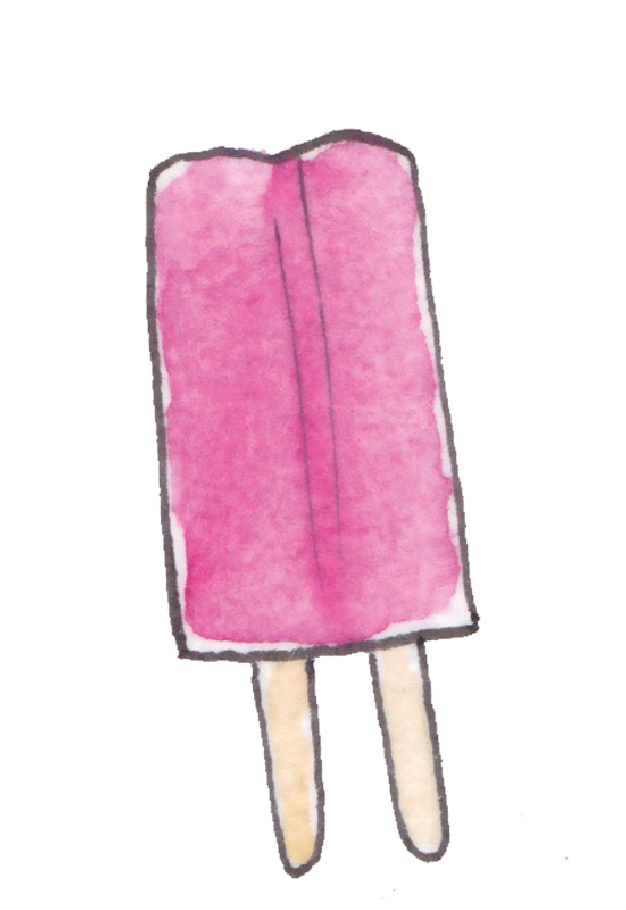CHAPTER 4
GETTING MOUTHY
let’s chat about oral care
One of things most cancer patients don’t expect they will have to deal with during treatment is oral care. I mean, who the hell is thinking about flossing and rinsing when you just had your breast cut into and a chunk of your hair is lying on the bathroom floor? I barely got to the dentist on a regular basis when I was healthy, so when I got sick, it was the furthest thing from my mind. Regardless, oral mucositis (mouth sores), xerostomia (dry mouth), and oral thrush affect up to 40 percent of patients having chemotherapy and almost every patient that undergoes radiation. These oral care issues can have serious implications on a patient’s health and need to be given proper attention.
In the same way that chemotherapy and radiation target and kill rapidly dividing cells that lead to hair loss and dry skin, they also cause canker sores and cotton-mouth. I know, it bites!
“Chemotherapy causes cell death and in the oral cavity it makes the mucosal lining thin. It may slough off, become red, inflamed, and ulcerated causing mouth sores,” says Dr. Brian Kantor, cosmetic dentist and partner in Lowenberg Lituchy & Kantor in Manhattan. “With radiation, the salivary glands are affected and produce less saliva. So the mouth is less lubricated and becomes very dry.”
Both issues can be debilitating in their own way. The biggest issue with mouth sores—which can get as large as one and a half inches in some cases—is that they can make eating so painful that patients consume less and their nutrition becomes compromised. Malnourishment weakens the immune system, which slows down the body’s ability to fight infection and heal. A lack of protein and calories also affect your energy level, which we all know is critical for maintaining the stamina required for this type of battle.

Dry mouth doesn’t seem as problematic but is it. Here’s why: “Saliva acts as a lubricant but it does so much more than that,” says Dr. Kantor. “Saliva contains enzymes that break down bacteria that cause cavities. It helps wash away food debris so it’s not sticking to your teeth creating bacteria and causing decay.” In many ways, saliva is like an antibiotic for the body because it acts as an infection fighter—something especially critical for cancer patients.
the first piece of advice is this…
Before you start chemo or radiation it is imperative that you go see your dentist. Now, I know what you are thinking: “I am basically living in doctors’ offices and you want me to make another appointment to see my dentist?!” Yes. That is exactly what I’m saying. Ideally, you should see your dentist a month before you start treatment but since time isn’t always on our side with these things, just try to get there as soon as possible. The reason it’s so important is this: “Cancer patients are prone to infections when going through chemo and if you already have an abscess or something, it’s going to get much worse,” says Dr. Kantor. “It’s better to take care of it beforehand.” When you schedule your checkup, also schedule a cleaning. Having clean, healthy teeth won’t cause infections that interrupt, delay, or pause your treatments later on.
Okay—so let’s chat about how to prevent or minimize these nasty side effects.
dry mouth
There are a few things you can do ensure dry mouth doesn’t become a larger, problematic issue:
 Drink up: Make sure you are getting the recommended eight eight-ounce glasses of water a day. If you are not a fan of aqua, like me, then you’re going to have to get creative with flavoring it. I squeeze a slice of Meyer lemon (a cross between a lemon and a Mandarin orange) into every glass, otherwise, I just can’t get it down. For me, this hybrid fruit gives the water a citrusy-sweet taste that helps me enjoy it. If you are experiencing upset stomach or acid reflux during treatment, avoid acidic fruits like lemon, grapefruit, orange, and lime. Instead, make some fruit- and veggie-infused “spa water”—like the kind you drink before a massage. There are a million different recipes for them—most of which are delicious and taste more like a cocktail. My top three faves: cucumber ’n’ mint, watermelon ’n’ rosemary and pineapple ’n’ strawberry.
Drink up: Make sure you are getting the recommended eight eight-ounce glasses of water a day. If you are not a fan of aqua, like me, then you’re going to have to get creative with flavoring it. I squeeze a slice of Meyer lemon (a cross between a lemon and a Mandarin orange) into every glass, otherwise, I just can’t get it down. For me, this hybrid fruit gives the water a citrusy-sweet taste that helps me enjoy it. If you are experiencing upset stomach or acid reflux during treatment, avoid acidic fruits like lemon, grapefruit, orange, and lime. Instead, make some fruit- and veggie-infused “spa water”—like the kind you drink before a massage. There are a million different recipes for them—most of which are delicious and taste more like a cocktail. My top three faves: cucumber ’n’ mint, watermelon ’n’ rosemary and pineapple ’n’ strawberry.
 Suck it: “Chewing ice is bad for your teeth,” says Dr. Kantor. “But sucking on a piece of ice actually helps lubricate the mouth.” It also helps prevent mouth sores. “Right before my infusions would start, the nurses would give me a plastic cup of ice chips,” says Joan Lunden, legendary newswoman and survivor of stage II triple negative breast cancer. “I would put them in my mouth and roll them around for five minutes. It chills all the blood vessels and keeps the chemo from going into those blood vessels. It definitely prevents those horrible mouth sores.” To make the experience more enjoyable, suck on your favorite Popsicle or freeze some flavored water. Then you will please your taste buds while keeping your mouth moist and healthy.
Suck it: “Chewing ice is bad for your teeth,” says Dr. Kantor. “But sucking on a piece of ice actually helps lubricate the mouth.” It also helps prevent mouth sores. “Right before my infusions would start, the nurses would give me a plastic cup of ice chips,” says Joan Lunden, legendary newswoman and survivor of stage II triple negative breast cancer. “I would put them in my mouth and roll them around for five minutes. It chills all the blood vessels and keeps the chemo from going into those blood vessels. It definitely prevents those horrible mouth sores.” To make the experience more enjoyable, suck on your favorite Popsicle or freeze some flavored water. Then you will please your taste buds while keeping your mouth moist and healthy.

 Reach for a rinse: There are a few mouth rinses that can alleviate the feeling that you have a piece of sandpaper in your mouth, rather than a tongue. They include:
Reach for a rinse: There are a few mouth rinses that can alleviate the feeling that you have a piece of sandpaper in your mouth, rather than a tongue. They include:
 Biotene: This over-the-counter rinse was created with cancer patients in mind and is the number one recommended dry mouth treatment by the Oral Cancer Foundation. And here’s why: The alcohol-free rinse is formulated with ingredients that lubricate the mouth for up to four hours. It also helps balance the pH of the mouth and keeps it clean. The rinse can be used up to five times a day.
Biotene: This over-the-counter rinse was created with cancer patients in mind and is the number one recommended dry mouth treatment by the Oral Cancer Foundation. And here’s why: The alcohol-free rinse is formulated with ingredients that lubricate the mouth for up to four hours. It also helps balance the pH of the mouth and keeps it clean. The rinse can be used up to five times a day.
 PerioSciences: In the past, most oral care brands would use alcohol in their products to kill bacteria and hydrogen peroxide to help brighten teeth. However, research shows that there are real issues with both ingredients. While alcohol kills off bacteria, it also dries out the oral tissue, which inadvertently becomes a breeding ground for bacteria. Hydrogen peroxide, on the other hand, triggers oxidative stress, which causes inflammation in the mouth. Both ingredients are too harsh for patients in treatment. PerioSciences is an oral care company that formulates their products—including their AO ProRinse and Dry Mouth AO Pro Gel—with natural antioxidants and polyphenol ingredients that work in tandem with the saliva’s antimicrobial agents. The formula is gentle on the tissue but pretty potent when it comes to keeping the mouth hygienic and healthy. It’s important to note that PerioSciences was not intended for cancer patients. Dentists who saw the positive results the rinse and gel yielded began recommending it for off-label purposes—for patients experiencing cotton-mouth during chemotherapy or radiation treatments. I used it for a brief time during my treatment and it made a huge difference. Because it’s intended to maintain a healthy mouth, the sooner you can start using before treatment, the better.
PerioSciences: In the past, most oral care brands would use alcohol in their products to kill bacteria and hydrogen peroxide to help brighten teeth. However, research shows that there are real issues with both ingredients. While alcohol kills off bacteria, it also dries out the oral tissue, which inadvertently becomes a breeding ground for bacteria. Hydrogen peroxide, on the other hand, triggers oxidative stress, which causes inflammation in the mouth. Both ingredients are too harsh for patients in treatment. PerioSciences is an oral care company that formulates their products—including their AO ProRinse and Dry Mouth AO Pro Gel—with natural antioxidants and polyphenol ingredients that work in tandem with the saliva’s antimicrobial agents. The formula is gentle on the tissue but pretty potent when it comes to keeping the mouth hygienic and healthy. It’s important to note that PerioSciences was not intended for cancer patients. Dentists who saw the positive results the rinse and gel yielded began recommending it for off-label purposes—for patients experiencing cotton-mouth during chemotherapy or radiation treatments. I used it for a brief time during my treatment and it made a huge difference. Because it’s intended to maintain a healthy mouth, the sooner you can start using before treatment, the better.
mouth sores
If you’ve ever had a canker sore, you know what a nightmare mouth sores can be. The first line of defense is an easy, old-school fix: a warm saltwater rinse. Saline helps disinfect aphthous ulcers and minimize inflammation. Here’s how to make one from stuff in your kitchen:
 Mix a teaspoon or two of salt with a glass of warm water. (If you don’t have salt handy or if you can’t handle the taste, use a pinch of baking soda instead.)
Mix a teaspoon or two of salt with a glass of warm water. (If you don’t have salt handy or if you can’t handle the taste, use a pinch of baking soda instead.)
 Hold the mixture in your mouth and swish from side to side.
Hold the mixture in your mouth and swish from side to side.
 After three minutes, spit it out in the sink. Try not to swallow it, as the salt can make you dehydrated.
After three minutes, spit it out in the sink. Try not to swallow it, as the salt can make you dehydrated.
 Repeat after meals and before bed.
Repeat after meals and before bed.
If this saline mixture doesn’t do the trick, “There’s something called Magic Mouthwash and this is what I give to all my patients that have sores,” says Dr. Kantor. “This soothes the mouth and enables patients to eat and talk. It doesn’t take the sores away but it takes the pain away.” So, what is Magic Mouthwash? It is a mouthwash that your doctor or dentist has to prescribe for a pharmacist to make. There are two variations. The basic recipe is below:
For cases where the sores are severe and painful, the pharmacist will add viscous lidocaine, a numbing medication, to the recipe. For those who get the lidocaine formula, it’s important to shake the mouthwash well before taking. Some patients who forgot reported their head or mouth being numb for longer than expected.
Magic Mouthwash used to be a pretty common concoction that pharmacists would make. Today, it has taken a backseat to more convenient over-the-counter topical treatments and painkillers. “I would say 20 to 30 percent of the time, the pharmacy will call and tell me they don’t know what it is or that they don’t know the ingredients. Once I give it to them, its no problem,” say Dr. Kantor. “It’s still one of the most effective treatments, so I still prescribe it to my patients.”

brush up your technique
We all know brushing your teeth is key to keeping your mouth healthy. If you’re like me, you squeeze a teetering heap of toothpaste onto your brush, then go to town scrubbing off every bit of plaque and grime that might have accumulated on your chompers during the day or overnight. This isn’t exactly the best way to brush—especially if you are experiencing mouth sensitivities. So, let’s review the proper technique:
1 Soften up: It imperative to use an extra-soft toothbrush. “Platelets decrease during chemo so the blood doesn’t clot as fast,” says Dr. Kantor. Gentle bristles equal less bleeding.
2 Warm up: “The trick is to soak the bristles in very hot water for a minute before brushing,” he advises. “The extra soft bristles become even softer in the hot water so they are not so abrasive on the gums.”
3 Angle down: Most of us brush our teeth from side to side or back and forth. That movement is too abrasive for teeth. It wears down the enamel and rubs along the sensitive gums. The gentlest technique is to hold your toothbrush at a forty-five-degree angle and brush downward.

get flossy
With all this info about decreased platelets, sensitive gums, and mouth sores—you’re probably thinking that flossing isn’t such a smart idea. It’s actually just the opposite. Because cancer patients are prone to infection, it’s critical to make sure you are removing any residue and bacteria that may linger between your teeth.
“You have to floss,” says Dr. Kantor. “Even though it hurts—you have to floss.” Here’s why: Brushing and rinsing alone won’t clean all the areas in your mouth. Between the teeth is the hardest area to clean and the only way you can do that is to floss. If you’re not flossing, you’re not cleaning those areas, and if you’re not cleaning those areas, you’re leaving yourself open to possible infections—ones that are harder to fight when your immune system is compromised. Why take that risk?
toothpaste
When I was going through treatment, I thought toothpaste for sensitive teeth was the best way to protect my tender mouth. It is if you have sensitive teeth. It won’t help if you have sensitive gums. I’m going to blame that dumb choice on my chemo brain. While most toothpaste is gentle enough, Dr. Kantor suggests avoiding whitening toothpastes that are formulated with silicone and abrasives.

eat, drink, and be merry!
It’s hard to talk about the mouth and not talk about what goes in it—food! For many of us in treatment, food takes on a love-hate relationship. Nausea, change in smell, and stress affect how much we can tolerate. But we still need to eat. It can make the battle more challenging, for sure.
While researching the chapter on scent for this book, I came across an intriguing study, “Learned Food Aversions in Children Receiving Chemotherapy.” Published in 1978 in the Journal of Science, the study was conducted by Dr. Ilene Bernstein, a neuroscientist and psychology professor at the University of Washington. I believe her findings are so significant, they should be universally adopted into all aspects of cancer care.
Let me fill you in. You know what a food aversion is, right? It’s when we eat too much of one thing and get sick from it or we taste something that repulses us and we develop a dislike for it. That is “learned taste aversion.” Dr. Bernstein’s study began as a way to see if pediatric cancer patients were developing aversions to their foods in relation to their treatment. She set out to conduct a sensitive test that could be evaluated.
“Everyone knows that children are incredibly food neophobic. They don’t like to try new things,” says Dr. Bernstein. “And children coming in for chemotherapy are even less likely to want to taste something novel before their chemo. So the question was, ‘What do you give a child that they will be unlikely to turn down?’ And the answer came to us: ice cream.”

To ensure the flavor was novel, Dr. Bernstein enlisted an ice cream manufacturer in town to create an unusual flavor. She didn’t want it to be unpleasant, but one that children normally wouldn’t order. That flavor was Maple Puff—a unique mixture of maple and black walnuts. “We had them come back several weeks later and we offered them the ice cream. If they had the ice cream before they had chemotherapy, they didn’t want it again. If they had the ice cream before a regular checkup, the were perfectly happy to eat it again.”
The study proved that the one group who had an association between the ice cream flavor and their chemotherapy symptoms actually avoided eating the ice cream again.
So, how can cancer patients put this intel to work for them during treatment? I asked Dr. Bernstein.
“One approach is to sequester some foods that you never consume before chemo,” she advises. For example, if pizza is your all-time favorite food, it’s probably best to hold off eating it the day of your treatments. “You want to safeguard the dishes you really love from becoming associated with chemo later on.”

Interestingly enough, in follow-up studies, Dr. Bernstein found that foods with strong odors and protein seemed more likely to become targets of aversions over other nutrients. Also on the “no fly list”—spicy and acidic foods, alcohol, sugar, and caffeine. Bland foods including mashed potatoes, chicken soup, plain pasta, and gravies are the way to go.
speaking of eating…
 In the same way that Popsicles are great for children who have sore throats or have just had their teeth pulled, Popsicles will help soothe your mouth by helping to take down some of the inflammation and to numb the mouth a bit. I suggest making your own with organic natural, nonacidic juices like apple juice, guava, mango, peach. Avoid things that are acidic, like oranges, which will have the opposite effect.
In the same way that Popsicles are great for children who have sore throats or have just had their teeth pulled, Popsicles will help soothe your mouth by helping to take down some of the inflammation and to numb the mouth a bit. I suggest making your own with organic natural, nonacidic juices like apple juice, guava, mango, peach. Avoid things that are acidic, like oranges, which will have the opposite effect.
 Smoothies are also a nice way to get your supplements and nutrients in a way that won’t be irritating to your mouth or stomach.
Smoothies are also a nice way to get your supplements and nutrients in a way that won’t be irritating to your mouth or stomach.
 Sorbets and frozen yogurt made with some dairy is a yummy way to load up on your vitamin D and calcium.
Sorbets and frozen yogurt made with some dairy is a yummy way to load up on your vitamin D and calcium.
 Freezing small fruits like grapes is a great way to soothe the mouth and get nutrients at the same time. You can suck on them to reduce inflammation and irritations while also loading up on vitamins B6, K, thiamin, and riboflavin.
Freezing small fruits like grapes is a great way to soothe the mouth and get nutrients at the same time. You can suck on them to reduce inflammation and irritations while also loading up on vitamins B6, K, thiamin, and riboflavin.
